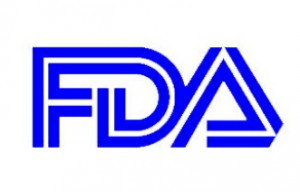A Virginia case of food poisoning from imported puffer fish has caught the attention of the U.S. Food and Drug Administration (FDA). The case is a little mysterious.
 Puffer fish that are not from the mid-Atlantic coastal waters of the U.S. can contain dangerous or deadly toxins. For this reason, imports of puffer fish, also called fugu, bok, blowfish, globefish, swellfish, balloonfish, or sea squab, are severely restricted. In fact, only one company, Wako international of New York, has FDA approval to import the fish two or three times a year for special occasions. And when it does, the fish must be processed and prepared by specially trained and certified fish cutters in Japan.
Puffer fish that are not from the mid-Atlantic coastal waters of the U.S. can contain dangerous or deadly toxins. For this reason, imports of puffer fish, also called fugu, bok, blowfish, globefish, swellfish, balloonfish, or sea squab, are severely restricted. In fact, only one company, Wako international of New York, has FDA approval to import the fish two or three times a year for special occasions. And when it does, the fish must be processed and prepared by specially trained and certified fish cutters in Japan.
When the fish arrives here, it is sold only to restaurants. Because the supply is so limited, dishes containing the imported fish are expensive, sometimes costing hundreds of dollars.
With the exception of those caught off the east coast of Florida which should not be eaten, domestic puffer fish do not contain deadly toxins and are considered safe to eat. They can be purchased at markets or restaurants and are reasonably priced.
In this case, the fish was not from the U.S. or imported by Wako. The FDA is working with state and local authorities on an investigation of the illness in Fairfax County.
Symtoms of puffer fish poisoning include: tingling lips and mouth, followed by dizziness, tingling in the extremities, problems speaking, balance problems, muscle weakness, paralysis, vomiting, and diarrhea. Onset of symptoms begin 20 minutes to two hours after ingestion. In extreme cases, respiratory paralysis can cause death.




